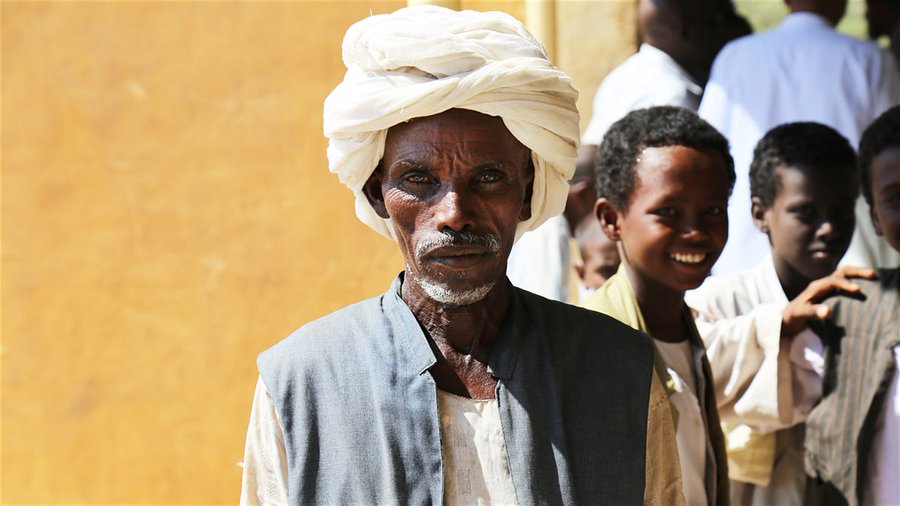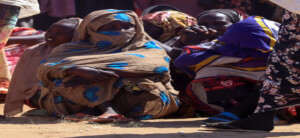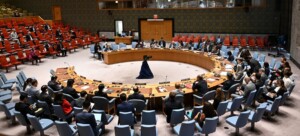Calls on UN to take over eastern Sudan file

Eastern Sudanese in Kassala (OCHA)
KHARTOUM –
The Eastern Sudan Consultative Council considers the approach of the Forces for Freedom and Change-Central Council (FFC-CC) to address the issue of eastern Sudan by holding “selective workshops” as “useless”, and calls on the United Nations to take over the eastern Sudanese file.
The council said in a statement on Sunday that “the approach of the FFC-CC will complicate the situation in the east, increase the divisions in its society, and may lead to the outbreak of a new rebellion”.
Ibrahim Onur, professor of economics at the University of Khartoum and member of the council, told Radio Dabanga that “the workshops and conferences on the subject were hijacked by people related to the Juba Peace Agreement”.
He criticised the preparatory workshop on governance in eastern Sudan organised by the Sudanese Professionals Association in early January, “because it took over the stipulations of the Eastern Sudan Track protocol” of the Juba Peace Agreement.
The FFC-CC is currently organising dialogue conferences on five contentious issues that need to be agreed on by the signatories of the Framework Agreement, in order to reach a final agreement with the military junta, after which a new transitional government of technocrats can be formed. The Sudanese Professionals Association is a prominent member of the FFC-CC.
In its statement, the Eastern Sudan Consultative Council accuses the parties to the Framework Agreement “of lacking the will and political qualifications to manage the eastern file” and appealed to the UN to take over the file and start with reconciliation workshops among the various tribes and clans in Red Sea state, Kassala, and El Gedaref.
This should lead to “a separate negotiating platform that does not exclude anyone, and where the localities will be represented”.
The Council considers the approach of the FFC-CC in managing the eastern Sudanese file “an extension of the failure of the central elites and the Sudanese political parties to address human issues in the region, which created a political vacuum that the native administration leaders* attempted to fill”.
Onur said that the Council submitted a request to sign the Framework Agreement 10 days ago, and it has not been answered yet. “We are willing to participate in the dialogue conference on eastern Sudan workshop to be held in the coming days, if we are invited.”
Eastern Sudan Peace Track
The High Council of Beja Nazirs and Independent Chieftains have opposed the Eastern Sudan Track since it was first agreed upon by the Sudanese government and the Sudan Revolutionary Front rebel alliance in the South Sudan capital of Juba in February 2020 as part of the Juba Peace Agreement.
The track was negotiated by the Beja Congress in Opposition and the United Popular Front for Liberation and Justice. The High Council of Beja Nazirs was not involved in the Juba peace talks.
In September 2020, the Beja council, headed by Hadendowa nazir** Sayed Tirik, separately organised a conference in Sinkat, Red Sea state, where the participants agreed on the unification of Red Sea state, Kassala, and El Gedaref into one eastern Sudan region, and called for self-determination. “Eastern Sudan should be ruled by its own people.”
After protests in 2021, the deputy-chair of the Sovereignty Council Mohamed ‘Hemeti’ Dagalo suspended the Eastern Sudan Track protocol until consensus would be reached among the eastern Sudanese. When the promised talks about an alternative did not materialise, the Beja nazirs, headed by Tirik, organised civil disobedience actions in September that year by blocking key highways in the east and closing several ports.
The Beja Nazirs Council witnessed a rift last year when a faction opposed to Tirik split. Ibrahim Adarob became chair of the new faction. Both groups call for self-rule. In mid-December last year, the AU-IGAD-UN Trilateral Mechanism invited the Adarob faction to participate in the discussions on the Final Agreement. The Beja group refused as they had not been included in the previous stages.
In his address to supporters in Kassala on January 1, Tirik again threatened to announce self-determination for eastern Sudan if the government in Khartoum does not respond to their demands for a separate platform on governance and development in the region.
Shehab Ibrahim, spokesperson for the FFC-CC, told Radio Dabanga on Sunday that the four remaining conferences, including the dialogue on eastern Sudan, will be launched at the end of this month, leading to the preparation of the Final Agreement with the military junta.
* The Native Administration was instituted by British colonial authorities seeking a pragmatic system of governance that allowed for effective control with limited investment and oversight by the state. The Native Administration also took on new responsibilities for executing policies, collecting taxes, and mobilising labour on behalf of the central government. According to the Darfur Bar Association (DBA), the Native Administration during the 30-year rule of dictator Omar Al Bashir did not represent the real community leaders: “It was only a tool [..] to prevent the escalation of the uprising.”
** A nazir is a state-appointed administrative chief of a clan, according to Sudan’s native administration system.











 and then
and then